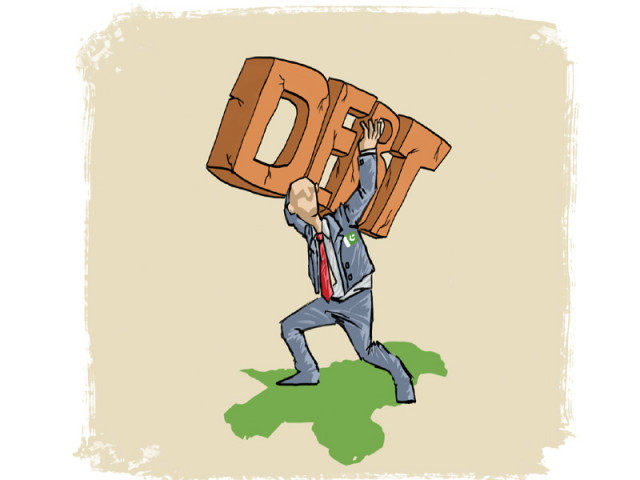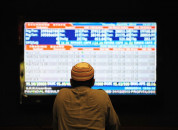Pakistan: treading a difficult path
Our economic realities are stark, but the future depends on us.

Due to high government borrowing from the International Monetary Fund in the past and rescheduled debts, every Pakistani born today carries a debt of Rs72,000. ILLUSTRATION: JAMAL KHURSHID
2013 will be a real challenge. For starters, our debt-to-GDP ratio is at a steep 108%. We are a whopping Rs12 billion in deficit, which will eventually force us to rethink our economic realities. In the last three years, government borrowing from domestic sources has crossed 133% from Rs3.2 billion to Rs7.6 billion. Meanwhile, external borrowing has touched the highest levels – from Rs2.7 billion to Rs4.3 billion in four years, a growth of over 65%.
Pakistan also faces another problem that impedes its economic growth: only 22% of the population actually pays taxes. Due to high government borrowing from the International Monetary Fund in the past and rescheduled debts, every Pakistani born today carries a debt of Rs72,000. Meanwhile, corruption continues to flourish, with daily losses to the economy of Rs6-8 billion due to the absence of accountability controls and measures, says the National Accountability Bureau.
The central bank’s annual report indicated that: “It is important to realise that over-dependence on consumption makes growth unsustainable, especially while the investment rate in the country has been falling.” Here, the government fails to explain why the rate of actual investment is down and why we are missing our targeted growth rate. The government has recently unveiled the new investment policy for 2013, clarifying that “all restrictions on minimum investments have been removed”. But more needs to be done to cut down redundant processes and approval procedures that are cumbersome and counter-productive. Pakistan needs to ensure that it cuts down the ballooning import bill and create pathways towards self-reliance through exploring internal natural resources like Reko Diq and the Thar Coal projects.
As China takes over the strategic management of Gwadar Port operations, our bilateral relationship with the economic giant has broken new ground. The port is close to the Strait of Hormuz, giving us the maximum advantage over sea routes, opening up a trade and energy corridor for Pakistan.
Realistically, we stand on delicate ground today. But, if we aim to move in the right direction, we shall attain a successful economic frontier.
The writer comments on international relations and public policy
Published in The Express Tribune, March 11th, 2013.
Like Business on Facebook to stay informed and join in the conversation.



















COMMENTS
Comments are moderated and generally will be posted if they are on-topic and not abusive.
For more information, please see our Comments FAQ